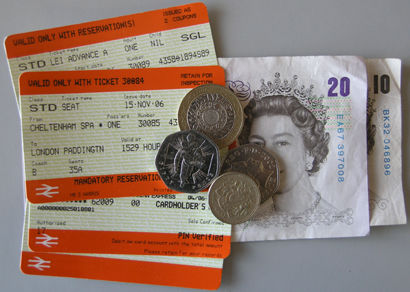PROTESTS were staged on 2 January as the New Year fare revisions came into force.
The average increase for regulated railway fares in England, which include most season tickets, was originally set at last July's RPI plus 3 per cent, giving a potential average increase of 6.1 per cent.
However, this figure has been almost halved by two successive Government rethinks. The first change was a reduction to RPI plus 1 per cent, but this was cut again by the Chancellor in his Autumn Statement to just RPI without any premium. This was already the case for peak fares in Scotland, which are decided by the Scottish Government. Passengers north of the border will also find that their off-peak fares have remained frozen.
The average rises in England are 3.1 per cent, but the 'flex' arrangement which allows operators to adjust their fares by a capped amount has also been limited to 2 per cent, having been previously 5 per cent.
A smaller 'flex' works against some passengers but helps others. Because the average must still be 3.1 per cent when measured against a 'basket' of fares, the minimum increase will now be 1.1 per cent and the highest 5.1 per cent.
Although the latest rises are smaller than originally planned, the TUC is still calling for further restraint, saying that commuters in Britain are paying a larger percentage of their salaries for season tickets than elsewhere in Europe. However, the calculations do not appear to take into account variations in national taxation, including the fact that some countries charge VAT on train fares.
Even so, union demonstrators and rail campaigners were out, and one major protest was staged at King's Cross station in London.
The general secretary of the RMT, Bob Crow, said: “2014 is all set to be another year of racketeering and greed on Britain’s privatised railways.
“The only solution – and one that’s opposed by all our main political parties – is total renationalisation and the return of our railways to complete public control.”
TUC general secretary Frances O’Grady added: "Rail passengers and taxpayers are being poorly served by a privatised rail service that has failed to deliver any of the efficiency, investment and cost savings that privatisation cheerleaders promised.
"While the shareholders of the private train operating companies are doing well for themselves on the back of massive public subsidies, passengers are paying the highest share of their wages on rail fares in Europe. Rail passengers must wonder why they can’t have the same cheap and more efficiently run state rail services that exist elsewhere."


